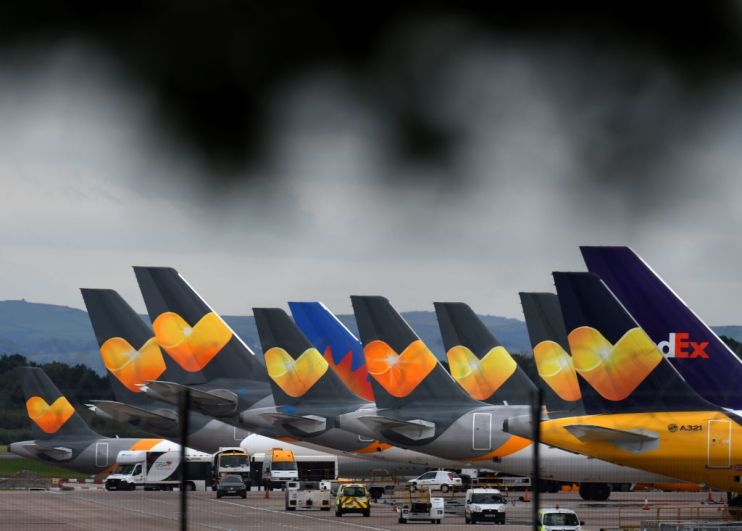Thomas Cook: Watchdog mulls whether to probe collapsed airline’s accounts

Britain’s accounting watchdog is looking into investigating whether Thomas Cook breached accounting standards, after the travel giant collapsed yesterday.
Nearly 15,000 people returned to Britain yesterday on specially-chartered flights after the firm collapsed under the weight of a £1.7bn debt pile.
Read more: Was the collapse of Thomas Cook inevitable?
The Financial Reporting Council said is mulling over whether it should launch a full-scale investigation. A spokesperson said: “In light of recent developments at Thomas Cook we are considering whether there is any case for investigation and enforcement action as a matter of urgency and in cooperation with the Insolvency Service.”
EY took over as Thomas Cook’s auditors in 2017 from PWC. In 2018, it “strongly recommended” the travel firm strengthen its accounting procedures.
Thomas Cook’s board said early on Monday morning that it had ceased trading after failing to find the £1.1bn required to keep it afloat, putting the jobs of its 9,000 UK workers at risk as all of the firm’s stores shut up shop.
After the collapse, Prime Minister Boris Johnson lamented the struggles stranded customers now face, and added: “One’s driven to reflect on whether the directors of these companies are properly incentivised to sort such matters out.”
The megalith effort of flying people back to the UK is set to continue for the next two weeks as 135,300 people need planes to come home, the Civil Aviation Authority said this morning. It is the biggest peacetime repatriation of British citizens in history.
City regulator under fire over shares
Separately, the Financial Conduct Authority (FCA) has come under fire over lack of market disclosures of the details of Thomas Cook rescue talks.
Last week, it emerged the firm had been rocked by a demand for an extra £200m from its lenders, on top of the £900m rescue package it had already secured from lead investor Fosun. This ultimately proved too much for the firm, and drove it to collapse early on Monday.
However, the fact that this £200m demand was only disclosed on Friday morning has prompted suggestions the FCA should have intervened to stop shareholders trading in a false market. It is believed the demand, led by lenders including RBS and Lloyds Banking Group, was made at least several days previously.
Frank Field, chairman of the Commons’ work and pensions committee, said last night that he was “very interested in the activity or or non-activity of the regulator, or what at the moment could be construed as aiding and abetting a false market”.
The FCA declined to comment.
Lenders including RBS and Lloyds released a statement early on Monday morning saying they had been “extremely supportive”.
Read more: UK flies home 14,700 Thomas Cook customers first day after collapse
“Unfortunately, and notwithstanding the efforts of all stakeholders, the £1.1bn funding requirement to adequately recapitalise Thomas Cook has ultimately proved too significant,” they said.
“The lenders providing finance facilities to the Group have been extremely supportive stakeholders, including through two periods of financial distress and have stood behind Thomas Cook over the past 12 months, a period where the Group saw cash outflows of about £1bn, maintaining that position over the crucial and busy summer holiday period.”